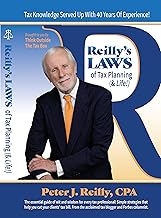Originally Published on forbes.com on July 5th,2011
______________________________________
Most of my posts are based on my own review of original source material, rather than what I read in other blogs. Since I often spend some time on the developments before I post, I’m usually not the guy to go to for breaking news. I make exceptions, though, when, well, when I feel like making exceptions. In this case it is because the parsonage exclusion is something I have been following pretty closely. My most comprehensive post on the subject was titled “Work, Fight or Pray – Vestige of the Medieval in Our Tax Code” (Pretty catchy eh ?). So I feel compelled to report this post by Reverend William Thornton. He pointed me to this story, which indicates that a suit by The Freedom From Religion Foundation has been dropped. They were maintaining that the parsonage exclusion violates the Establishment Clause of the First Amendment. It appears that the abandonment of the suit is based on the Supreme Court decision on the Arizona tuition tax credit, that holds that for purposes of standing to sue under the Establishment Clause, a tax credit is not equivalent to an expenditure.
The “parsonage exclusion” (Section 107 of the Internal Revenue Code) is one of the shorter sections :
In the case of a minister of the gospel, gross income does not include—
(2) the rental allowance paid to him as part of his compensation, to the extent used by him to rent or provide a home and to the extent such allowance does not exceed the fair rental value of the home, including furnishings and appurtenances such as a garage, plus the cost of utilities
You would infer correctly from the non-inclusive language, that the section goes back to the early days of the Code.
The exclusion of a cash “rental allowance” has been an area of abuse. I believe the IRS will be appealing the decision that allowed Phil Driscoll to exclude $195,000 in parsonage payments from his music ministry that were attributable to his second home.































































































